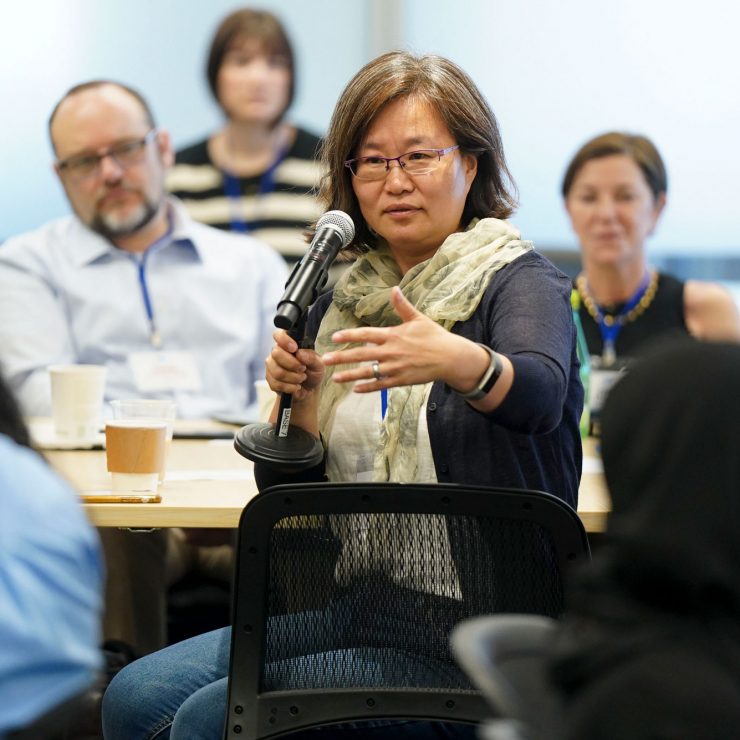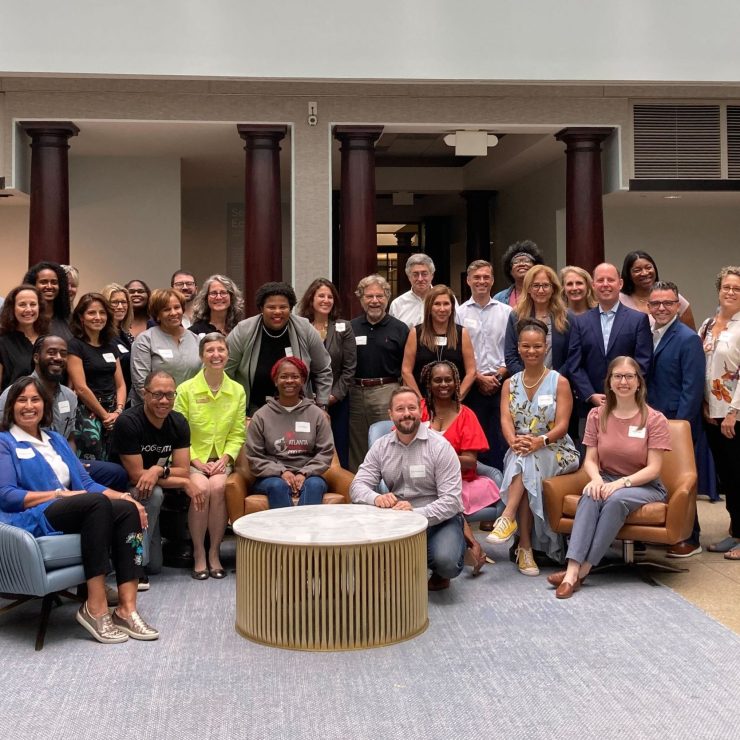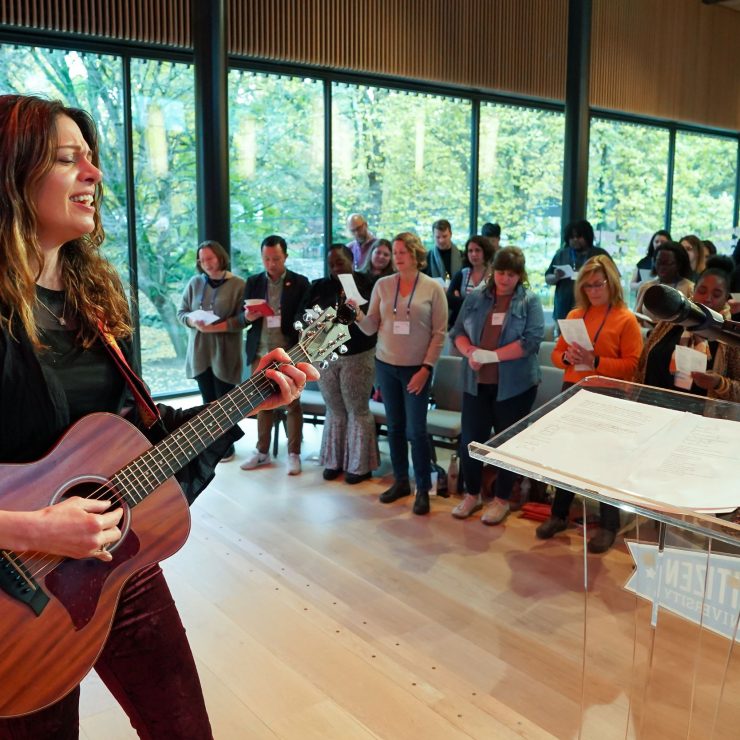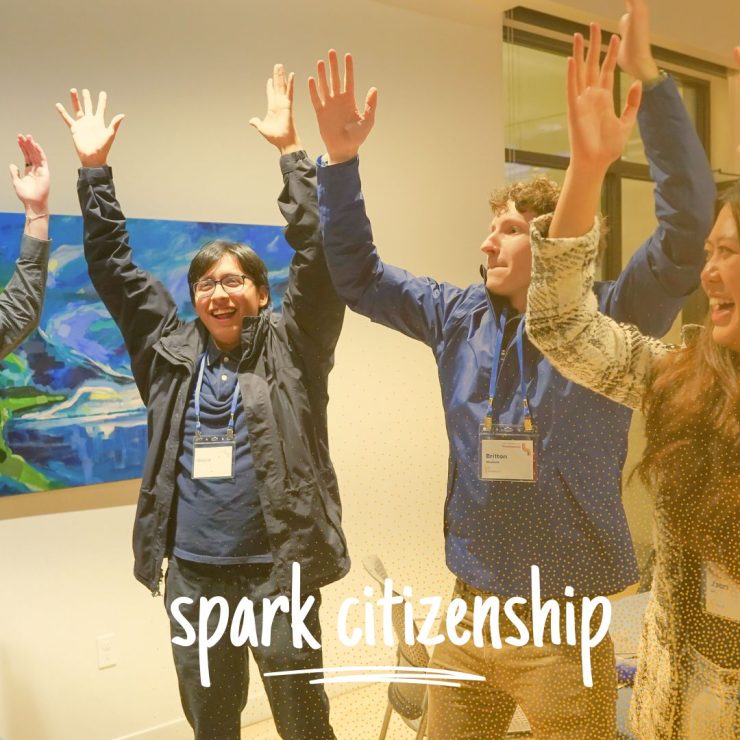Civic Collaboratory
Shifting the current paradigm of individual achievement towards collaboration and shared success.
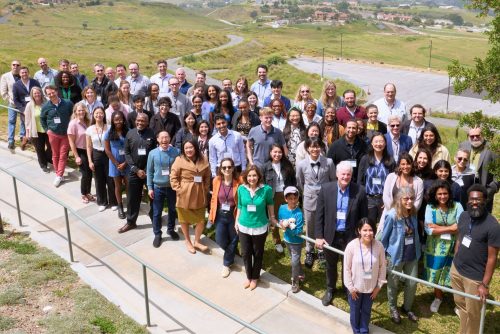
There’s a disconnect happening across the country: our communities are rich in civic assets — like innovative problem solvers, passionate organizers, and willing volunteers — but leaders too seldom cooperate across divides of difference. Everyday citizens feel powerless to affect change on issues they care about. We need new approaches to cultivating community
collaboration, both nationally and locally.
Citizen University’s Civic Collaboratory model is designed to meet this need. It makes use of time-honored traditions from across cultures that build bonds of trust and affection. It embeds the practice of genuine mutual aid within community networks. It is an adaptable format that can be used in any community, big or small.
The power of mutuality
We think of the Civic Collaboratory as a mutual-aid club, convening catalytic innovators across sectors and silos of civic work to build relationships and circulate power. The idea is simple: at each gathering, several members take turns presenting projects or initiatives they are working on. The rest of the group then offers not critique or commentary but hard commitments of help — capital of every kind (relational, institutional, intellectual, financial). In the best sense, what goes around comes around and the rotation is never-ending. This has made the Collaboratory a uniquely influential cross-silo network of action.
The National Civic Collaboratory
Since 2011, Citizen University has led a successful nationwide Civic Collaboratory, connecting civic innovators across lines of geography, political ideology, race, and domain. The network’s strength stems from its diversity, with representation from the Obama Foundation to the Ronald Reagan Foundation, from veterans’ advocacy to youth civic education organizations, from arts institutions to the corporate sector. The goal of the Collaboratory isn’t to form just another professional network or to advance a specific policy agenda. It’s to spread a habit of reciprocal support that makes the ecosystem as a whole more vibrant, interconnected, and resilient. The impact we’ve had over the last dozen years of the National Civic Collaboratory has been field-changing.
As someone who participated in my first Civic Collaboratory a decade ago, it was a pleasure to participate in the gatherings this past year. I emerged from each Collaboratory brimming with new ideas, leaders I was keen to follow up with, and — not least — renewed hope for the future of our democracy.
Our National Civic Collaboratory is also distinctively intergenerational. At gatherings, members of our current Youth Collaboratory cohort join as full participants — offering commitments of resources, engaging in deep conversation, and building career-shaping relationships.
It’s one thing to discuss the merits of a healthy civic culture and another to actively practice sharing power (and amplifying it!) by listening to and learning from the wisdom of younger generations. I feel more committed than ever to joining forces with these rising leaders to co-create a future that works for all of us.
The Collaboratory creates a structure of permission for us to cross divides, for us to say, let’s learn together and let’s build together. When we create these habits of committing to each other, we develop a little microcosm of what’s possible when America works. This gives members the confidence and inspiration to circulate this habit in their own work, now and into the future.
Membership in the National Civic Collaboratory is by invite only, but we are eager to connect with folks who believe their work would benefit from participation. Share your information with us and we will follow up during our nomination season next winter.
Spreading the model locally
After over a decade of proven success at the national level, Citizen University has begun seeding the Civic Collaboratory model at the local level. We have worked with organizations in Atlanta, Arizona, Chicago, and elsewhere to apply this model across the country, working directly with civic leaders, small businesses, non-profit organizations, and faith leaders to do so.
If you’re interested in bringing a Collaboratory model to benefit your local community, please reach out to Zoey Belyea ([email protected]).
